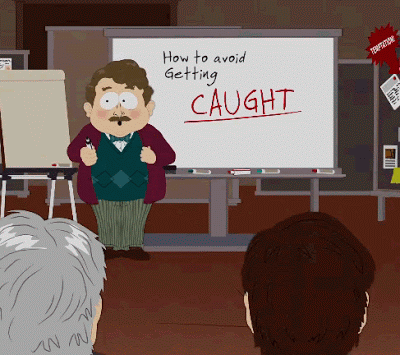If I were in charge of a country, I would change 3 significant things:
- I would legalise and monopolise all illegal drugs
- I would implement a universal basic income
- I would rigorously secularise society
Part 1. The War on Drugs has Failed
This is no secret. It is well documented now, in all sorts of ways. It costs many billions each year, it causes more harm than good, costs lives, creates crime, and completely fails to deliver on its one objective. Drugs are more accessible, cheaper, and more numerous than at any other point in history.
We need a new approach.
Portugal has been the only country to really give decriminalisation a serious go. And it has worked remarkably well for them. But decriminilisation is a weird halfway sort of solution. Sure, it isn’t ‘criminal’ any more, but it still isn’t legal. It becomes more like speeding.
If I were in charge, pending rigorous expert consultation and comprehensive review, I would immediately take steps to create a centralised government drug production and wholesale distribution system.
Initial Education
While the infrastructure was being set up, I would ensure adequate educational material was made available and regularly presented to kids of all ages, at least once a year throughout all of high school warning of the side effects and risks of drugs (in all forms), ensuring that everyone in society grows up with a valid understanding of drugs, not a fear based one. TV commercials, paper, radio, and mail-drops of informational pamphlets would also be done at this early stage to inform the public of the changes, and provide them with access to a website where more information and drug facts could be accessed.
With the warnings and education in place, the drugs would start being produced, and retail outlets would be licensed. Either directly through pharmacists, or similar to how liquor outlets are currently handled in Australia. Either way, the government would handle the production and wholesale distribution to private, highly regulated, thoroughly trained and licensed retail outlets. Every shipment of every type of drug would have information sheets which go with each batch, providing crucial information relevant to the dosage, side effects, risks, interactions etc that should be known before taking that drug.
Retail Scenario
The retail outlets would be responsible for ensuring the customer meets age restrictions (most likely 21+ for most drugs, but definitely based on scientific rigour rather than ideology), limiting the quantity purchased per customer, providing cursory verbal information, warnings and queries to ensure the customer understands the risks (as pharmacists currently do for prescription drugs), and of course, giving information pamphlets/booklets with the purchased drugs.
User Consequences
Now, all drug users have a clean reliable source of known quantities of drugs. This will significantly reduce risk of poisoning and overdose. Plus all users have readily accessible information about risks, rather than trusting ‘friends’ and random strangers to advise them. This too will have a significant impact on overdoses, overuse, addictions, bad interactions and many other risks typically assumed to be the fault of the drugs, rather than the fault of ignorance.
Crime Results
With a reliable government source, drug dealers will all be rapidly put out of business.
All of the drugs will be sold with a high tax rate and commercial mark up, so drug dealers might be able to keep lower prices. However, people will tend to prefer the certainty of knowing they are getting pure quality of known concentrations from reliable outlets over slightly lower prices. The profitability of large drug running organisations and organised crime groups will simply disappear, and with it, those groups will die a quick death. Most organised crime will simply disappear because most of them depend on their drug sales to maintain cash flow.
With the death of most organised crime groups, violence will decline. Turf wars, inter-gang rivalry, and violence to intimidate and maintain control will disappear with them. This fact is already being demonstrated with marijuana legalisation in Colorado, with violent crime declining by 5.2% in the first 6 months. Legalise all drugs, and it will be much more significant.
Revenue and Expenses
The biggest positive will be the significant new income source taken from crime syndicates and given to the government for the benefit of the public.
The costs of policing drug crime are significant, and these will nearly completely be eradicated over the course of a couple of years. The savings there alone will be immense, but they will be nothing compared to the revenue generated by the sale of the drugs, and the tax revenue generated from the retail outlets. If there is one thing we have learned over the last 50+ years of drug prohibition, it is that druglords make more money than just about anyone else in society
Some of that revenue would be lost to the initial costs – creation of the farms, laboratories and distribution networks. Ongoing staff costs, maintenance etc will be easily covered by the revenue of sale. The significant profits and the taxation from retail sales would then need to be all used for specialised drug-related concerns in society.
Investment into Education
First, there would be the education side. Some of the money would need to be put into ensuring schools can adequately teach children about the drugs, so that no one is left ignorant of their risks and dangers. So a certain amount would be invested into schools every year and specific teachers, teacher trainings, materials, and other overheads associated with this.
Medical Expenses and Drug Abuse Support
Secondly, most of the money would need to go into ‘medical’ support. This would consist of counselling, addiction rehab clinics in uk, and outright medical expenses generated as a consequence of drug abuse. As part of the constant exposure to drug information provided under this system, constant reminders about counselling, psychological support, and medical assistance would be forever pushed on all drug users, so that no one is ever left feeling isolated, vulnerable and trapped by their drug use. This fact alone will save more lives than any other measure in my opinion (and cut medical costs by helping people avoid the devastating outcomes of untreated abuse).
One of the biggest problems created by the war on drugs is the labelling of drug abuse victims as criminals, forcing them to feel trapped by their situation, pushing them deeper into desperation, crime, isolation, mental illness etc. By breaking that stigma alone, lives will be saved, people will be helped back to functional productive members of society, and everyone will benefit.
Scientific Investment
If money remains, or after a few years of keeping enough money in buffer to compensate for fluctuating incomes and expenses, a fund should be generated for scientific research. By having easy access to all known drugs on the planet, scientific research should be delved into with rigour. Medical applications, long term consequences on individuals, society as a whole, psychology, physiology, etc. The ability to finally get some real research done on these most remarkable of chemicals will yield amazing commercial prospects for the country as new medical applications and treatments will be pioneered there exclusively.
Related to this is the fact that by controlling virtually all drug production, wholesale sales, and regulation of retail sales of drugs, it would finally be possible to get actually reliable statistics on the usage rate of drugs. Governments would be able to monitor just how much of each drug is consumed, and the track that against adverse health affects, long term outcomes etc. Rather than just polling people, and roughly guessing. It would even be possible to recruit far more people into long term health studies of specific drugs, rather than trying to infer the outcomes indirectly.
Invest in Children
One final investment option for the new drug based revenue stream, if there is the money available for it, is to invest in parental support.
This is a bit of a wildcard, but it seems to me like most drug abuse doesn’t come from drug addiction nearly so much as it comes from feeling trapped and useless (see the rat park research). One half of that equation is being unable to fend for oneself – unemployable, destitute, desperate poverty etc. We will deal with this issue in step 2 of this piece.
But the other half of the equation (or at least, another aspect of it) is growing up in an abusive or dysfunctional household.
As a society we already try to prevent children suffering through abusive upbringings. And this is great, but no doubt most of them slip through the cracks because abuse and maltreatment isn’t always obvious. It also isn’t always intentional. Often parents just find themselves overwhelmed. Unsure of themselves. Potentially even inadequate (surprise! Just giving birth to a human doesn’t make you a great parent!).
So the wildcard idea here is to invest in family support initiatives. Definitely keep providing strong support to abused and maltreated children, but also start extending support to parents who just wish they had more help with caring for and raising their children. The idea here is something of a government initiative Super Nanny program. Nannies who come and visit for one work day per week (mornings, middays or bedtimes) or more if required, to help advise parents on how to deal with troubled children, structure and support. Lighten the load and inject alternative unbiased professional experience into the household, and hopefully the children will have better lives for it.
My intention with this idea is to help reduce the number of people who grow up harbouring psychological trauma, mild as it may be, at the hands of misguided parents. I don’t mean to over-generalise here, but like it or not, parents have the biggest impact on our lives, and if you are unlucky enough to get one who repeatedly tells you you are useless, or ugly or a failure at life, or the cause of all of their problems….etc then there is a good chance that these sorts of psychological traumas will follow you for your life, and for some people, these traumas can cause them to seek escape into drugs.
Like I said – wildcard idea, and far from validated. Just an idea at this stage, which I am happy to receive feedback on.
Ultimate Outcome
So in summary, the government produces and wholesales all (currently illegal) drugs to highly regulated retail outlets who sell to very well informed customers who have significant psychological and medical support provided to them should they need it. Drug cartels would be put out of business, reducing violent crime significantly as crime syndicates lose their main source of funding. Policing can focus on actually protecting people rather than arresting drug users, the government has more money all round, and scientific research will undoubtedly find innumerable medical applications for most of the drugs, selling the technology/knowledge/application/treatment globally, creating even more revenue for the nation.
 Cost?
Cost?
I really don’t see one.
I know, I know: More people will have access to drugs, and drugs are dangerous!
Access will be there, but most people, even if offered heroin for free at a party, would still decline. Hell, alcohol is ever present in our society and I turn that down all the time! Just because something is available does not automatically mean people will start doing it. There has to be a desire to do it. Just ask a Dutch person whether they smoke marijuana and take mushrooms or not – most don’t.
Secondly, if people want drugs, they can already get them! This is the current situation! The difference is that when you have problems, you have no real support. And your chances of having problems are significantly increased because of the unreliable source, the materials the drugs are cut with, and the lack of education around the drug usage. The only ‘education’ we currently have is “Don’t do it.”
Abstinence only sex education causes more pregnancies than real sex education, and abstinence only drug education causes more death and harms than real drug education.
So, when we get over this automatic assumption that ‘doing drugs’ is the bad thing, and start to think in terms of actual harms – overdoses, adverse health affects, psychological illnesses etc – then we can start to assess which system causes more harm. Does the current system which provides no support and proper education and reliable sources cause less harm than the system outlined here?
I doubt it very much.
Not only do we have easy comparisons between the USA and the Netherlands showing that the country with legal access to drugs actually has LOWER usage, but we have the obvious fact that support and education create better outcomes than ignorance, violence and unreliable sources.
So again.. I can’t see an actual negative.
End the war on drugs. Legalise and monopolise drug production and lets make the world a better, more inclusive and supportive place.
Part 2 to follow soon.

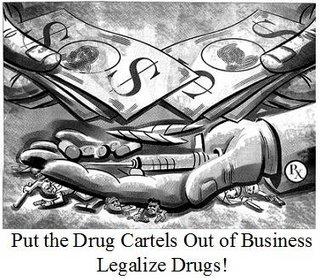
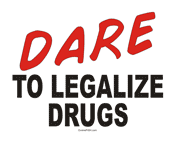
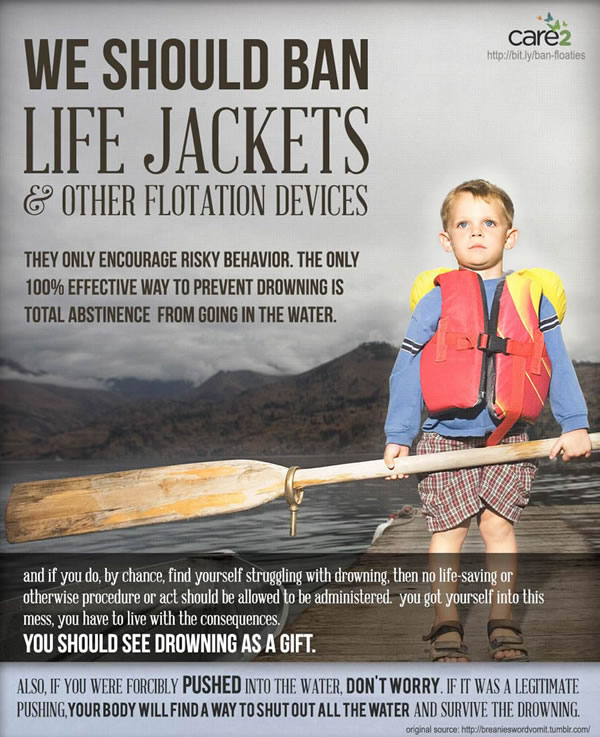

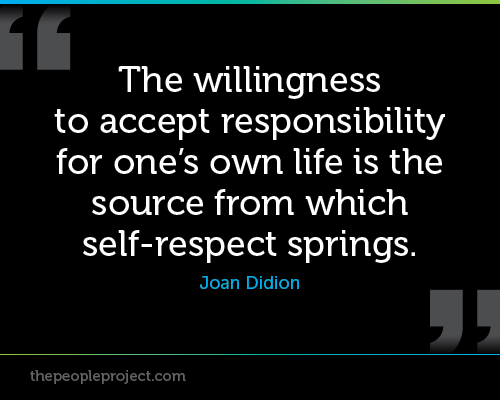

 Imagine a modern world where people have to get vaccinated in secret, with vaccines they can’t be sure are what they are meant to be, and with needles which might be reused. Imagine the media covered every single adverse reaction which ever occurred, and talked about people dying and contracting blood born diseases from shared needles, despite the fact that these problems only exist because vaccines are illegal (ie: not a product of the vaccines themselves). While the media is covering every negative aspect of vaccination it is of course only covering 1 in 200 of the complications experienced with alternative medicines. The public is justifiably convinced that alternative medicines like homeopathy and acupuncture are perfectly safe, while vaccination is a high risk treatment which doesn’t offer any benefit to the receiver.
Imagine a modern world where people have to get vaccinated in secret, with vaccines they can’t be sure are what they are meant to be, and with needles which might be reused. Imagine the media covered every single adverse reaction which ever occurred, and talked about people dying and contracting blood born diseases from shared needles, despite the fact that these problems only exist because vaccines are illegal (ie: not a product of the vaccines themselves). While the media is covering every negative aspect of vaccination it is of course only covering 1 in 200 of the complications experienced with alternative medicines. The public is justifiably convinced that alternative medicines like homeopathy and acupuncture are perfectly safe, while vaccination is a high risk treatment which doesn’t offer any benefit to the receiver. I’m so glad you asked! Because we all know that drugs are bad and dangerous and harmful right!? Well, yeah, there is some level of truth to that. Like driving cars. Or mountain biking.
I’m so glad you asked! Because we all know that drugs are bad and dangerous and harmful right!? Well, yeah, there is some level of truth to that. Like driving cars. Or mountain biking. 
